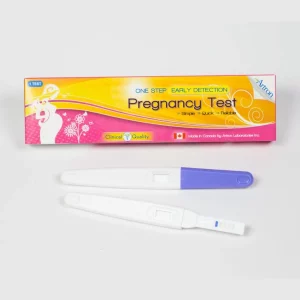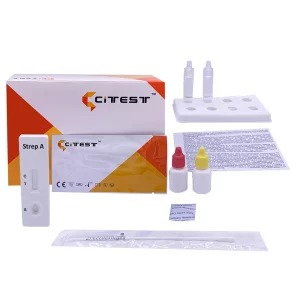People who experience a mild case of COVID typically recover within one to two weeks, but people with more severe cases might take more than six weeks.
For some, symptoms continue—or new symptoms show up—for weeks or months after the virus is no longer in their body. In these cases, the people with lasting health effects have a condition known as long COVID or post-COVID-19 condition.
Long COVID can leave people with long-term medical issues such as organ damage or cognitive problems. People who experience it report symptoms including fatigue, brain fog, and shortness of breath.
The question is: How long does COVID last? It’s currently unknown how long symptoms can persist after COVID, but researchers are conducting studies on the long-term effects and treatments. Little data exists on the lasting consequences of a SARS-CoV-2 infection, and conclusive research requires years of study.

How Long Can Long COVID-19 Symptoms Last?
The timeline of COVID-19 symptoms varies depending on the severity of the individual’s illness. The U.S. CDC recommends isolating for five days after developing symptoms if the case is mild, but isolation should last ten days for people who become very sick from COVID.
Most people recover from COVID symptoms within two weeks, but some develop symptoms after the infection is gone. People with these ongoing effects of the virus are not infectious, and a COVID-19 test yields a negative result.
According to the Canadian government, about 80% of adults reported one or more long COVID symptoms for 4 to 12 weeks after infection. 60% reported long-term symptoms lasting more than 12 weeks. In one study, 30% of COVID-19 patients reported persistent symptoms after nine months.
With people only a year or two into recovery from their infection, the longer-term effects of COVID have yet to become apparent. Researchers have studied the lasting effects of other coronaviruses, such as severe acute respiratory syndrome (SARS). They have found that 40% of people recovering from SARS struggle with chronic fatigue symptoms similar to the reported effects of long COVID. These people are commonly known as COVID long haulers.
What Are Some of the Symptoms of Post-Acute Sequelae From COVID-19?
Individuals with underlying diseases or health risk factors such as diabetes or high blood pressure are more likely to experience long-lasting symptoms after COVID-19. However, people who had mild cases of COVID and no pre-existing health concerns have also reported prolonged symptoms.
Common Symptoms of Long COVID:
- Shortness of breath
- Tiredness or fatigue
- Headache
- Insomnia
- Brain fog
- Dizziness
- Depression and anxiety
- Memory issues
- Change in smell or taste
The symptoms of long COVID are similar to COVID-19, but people have reported new symptoms after recovering from the infection. The most notable difference with the long COVID symptoms is cognitive issues, such as brain fog and insomnia.

It’s unknown how the SARS-CoV-2 infection causes neurological problems. Some medical institutes believe that the virus can cause damage to the nervous system from inflammation or an immune reaction that causes our body to attack its healthy cells.
The effects of COVID-19 also extend to organ damage. Autoimmune responses triggered by the infection can cause damage to your heart, lungs, kidneys, and other parts of your body. The virus can also cause blood clots that could lead to heart attacks and strokes.
How Long Does Brain Fog Last After COVID-19?
“Brain fog” is a non-medical term describing how people feel when their thoughts are sluggish. People commonly experience brain fog after illness, sleep deprivation, or certain medications. Typically, the condition resolves itself after a short time.
An article from Harvard Health estimates that 22-32% of patients experience brain fog after recovering from COVID-19. They find it hard to concentrate and struggle to remember things daily. It’s unknown how long this symptom can last since the ongoing effects of COVID are still under speculation.
As with other parts of the body, COVID-19 can cause complications in the brain. An autoimmune response or damage to the brain’s blood vessels could have lasting cognitive effects. The virus can also cause damage to other organs, leading to prolonged symptoms that could contribute to brain fog.
Studies show that people experiencing brain fog after COVID-19 can recover with treatment. Researchers recommend working with a therapist regularly for rehabilitation. The studies suggest that the effects of brain fog significantly improve after six to nine months of therapy, indicating that this lasting symptom could be reversible.
The following are strategies recommended for clearing brain fog:
- Exercise. Fatigue can make it challenging to be active, but even a small amount of activity five days a week can improve brain fog.
- Eat healthily. A well-rounded diet is proven to be good for brain health.
- Sleep. Sleep is when the body heals itself.
- Socialize. Interacting with others can improve thinking and memory skills.
- Find hobbies that make you think, such as reading, music, puzzles, and other exercises that lead to cognitive improvement.

Which Organ System is Most Often Affected by COVID-19?
COVID-19 is a respiratory disease and can trigger a respiratory tract infection. Upper respiratory tract infections affect the sinuses, nose, and throat, while lower respiratory tract infections can damage the lungs and windpipe.
When the SARS-CoV-2 virus enters your body and comes into contact with the mucous membranes in your nose, mouth, and eyes, it uses those cells to multiply. The infection spreads through your respiratory tract, travelling down your airways and causing inflammation.
80% of people with COVID-19 experience symptoms, including cough, sore throat, and shortness of breath. Some individuals develop pneumonia, an infection deep in the lungs that causes more severe illness. The virus may infect both lungs and cause fluid to build up, making it harder for your body to absorb oxygen.
In critical COVID cases, the infection in the lungs damages the linings of the air sacs, and the resulting inflammation can prevent the lungs from doing their job. Some patients with the most severe infections require a ventilator to help them breathe.
COVID-19 patients can also develop blood clots in the lungs and other organs, leading to long-term health risks.
Treatment and Prevention of Lasting COVID-19 Symptoms
With no definitive diagnosis or treatments for post-acute sequelae of COVID-19, it’s best to avoid contracting the virus. Vaccines are widely available, and though they do not entirely stop infection, they can prevent severe illness. Unvaccinated individuals with underlying health problems are the most at risk for a slow recovery from an acute COVID-19 infection.
With the emergence of new coronaviruses like the highly-contagious Delta and Omicron variants, stopping the spread of COVID-19 is crucial. Canada’s government advises to stay up-to-date with vaccinations, pay attention to public health alerts, and make responsible decisions regarding the risk of COVID-19.
While infected with the virus, public health officials advise, people should isolate themselves for five days from when symptoms started and wear a mask for five days after quarantine.

Screening Your Workplace for COVID-19
How long does COVID last? The answer remains unknown for some, but many companies don’t want to risk exposing their workplaces COVID-19 cases.
Rapid Test & Trace is committed to making rapid tests accessible to Canadians. We have partnered with hundreds of businesses to help stop the spread of COVID-19, facilitating workplace screenings to keep workers safe. We offer Health Canada-authorized rapid tests, program planning, and data management to help your company start its COVID testing program.
Buy rapid tests in our online store or contact our team for a quote!
Buy Rapid COVID Tests in Canada
While scientists are still studying the phenomenon of long COVID, our team at Rapid Test & Trace pledges to help stop the spread of COVID-19.
At Rapid Test & Trace, we are Canada’s most-trusted source of quick and affordable rapid COVID tests, partnering with hundreds of organizations across the country. Navigating the process of getting tested for COVID can be confusing and stressful, especially if you need quick results for work. We make it easy, delivering rapid tests that Health Canada authorizes within two business days of purchase.
-
Sale!
 🍁 PRODUCT OF CANADA 🍁
🍁 PRODUCT OF CANADA 🍁Artron One-Step Early Detection hCG Pregnancy Test
At-home Fertility Testing Kits$7.99Original price was: $7.99.$6.45Current price is: $6.45./testAt-home Fertility Testing KitsArtron One-Step Early Detection hCG Pregnancy Test
Rated 4.00 out of 5$7.99Original price was: $7.99.$6.45Current price is: $6.45./testYou save $1.54 (19% Off) Buy Now(5 Reviews)Rated 4.00 out of 5$6.45Rapid Flu & Strep Test KitsCiTEST Strep A Rapid Test (20 pack)
$34.90/box Buy NowRated 4.80 out of 5(5 Reviews)Rated 4.80 out of 5$34.90
Our goal at Rapid Test & Trace is to provide Canadians with tools to protect themselves and others. Order rapid tests through our online store or contact us for a quote.
Travelling Soon? Book Your Observed Test Today
It’s a fast and easy way to get your COVID test results certificate for travel. Just schedule a time with one of our friendly nurses, perform a supervised rapid antigen test and get your results document via email.




















































